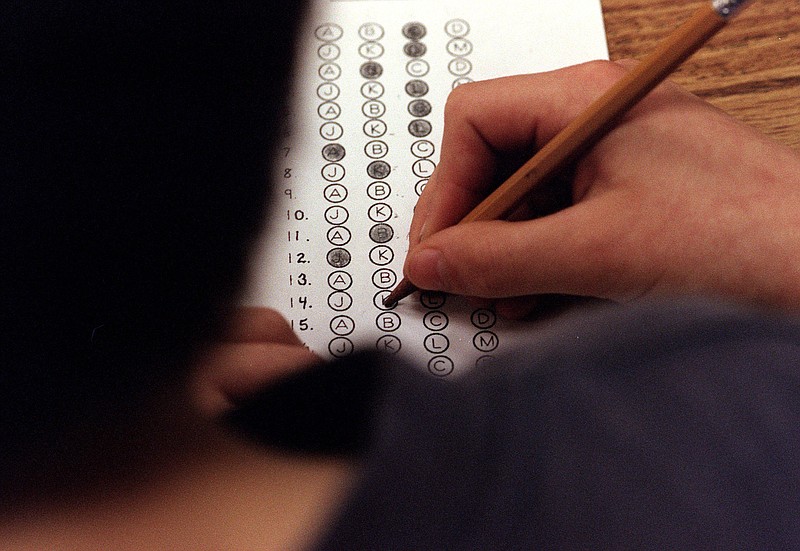Maybe those scores of parents who kept their children out of standardized testing at Normal Park Museum Magnet School had a premonition.
On Monday, day one of what was supposed to be a new era of online testing in Tennessee, thousands of students got the figurative equivalent of the dreaded spinning color wheel on their computer screens, their hard drive's version of the declaration that "we're not doing this."
Although the state Department of Education had worked nearly a year and a half to get ready for the new TNReady tests, and even longer to fully test online, the time proved not long enough.
Measurement Inc., the North Carolina-based company that - with a $108 million contract, of which the state has only paid $1.6 million - developed the test that is in line with the state's Common Core standards, suffered a severe network outage minutes after some schools began administering the exams.
By the end of the day, Education Commissioner Candice McQueen stopped the online process and ordered the tests - which replace the Tennessee Comprehensive Assessment Program assessments - be taken with paper and pencil. Not only will the tests be taken with paper and pencil during the first window of testing - now beginning Feb. 22 - but also during the second window - April 18-May 13.
"Despite the many improvements the department has helped to make to the system in recent months and based on the events of this morning," she emailed school directors, "we are not confident in the system's ability to perform consistently."
As of late last week, parents of more than 140 students at Normal Park had received permission from Principal Jill Levine to be excused from the mandatory testing, though they cited the missed instructional time and amount of testing as reasons for opting their children out.
However, anecdotal evidence across the state, all before Monday's launch, showed computer glitches on practice tests and an inability to log on to the testing platform. And this was despite what education officials said were significant investments in server capacity and on-site visits to school districts testing the program.
The resulting logistical problems were just one part of the fiasco. Measurement Inc. can't get the paper tests - which the company will rightly pay for - into the hands of teachers until Thursday, and teachers - who spent hours of time on tasks such as teaching students without computers how to type - now have to scramble to assemble lesson plans for the former testing days.
But teachers and principals are also worried how students who take the tests only on paper will compare with those who have taken part online and part on paper, and the fairness of it, and whether the irregularity will create unreliable data that will, in turn, affect the evaluations of teachers.
Fortunately, the Tennessee Teaching Evaluation Act, signed into law in 2015, addressed some concerns on how student performance on assessments affects evaluation scores.
Despite the failure, assessment testing, disliked by teachers, parents and students, is nevertheless an essential part of education. Teachers don't like the lack of creativity involved in teaching to the test. Parents don't like the frequent change in assessment tests and the idea they might be wrapped up in federal schemes of what state receives what money (like Common Core has ben in the Obama administration). And students don't like having to test so often.
Yet, standardized tests measure student achievement in a way that individual teacher-administered tests cannot. They eliminate the biases of, among other things, race, culture and grading considerations. Such tests provide snapshots across a class, a school, a school district, a state and a nation to determine what is being learned and what is not being learned. They, then, are catalysts for improvement on any of the aforementioned levels and may determine how money is spent - and how much - on improvements.
So, for parents of Normal Parks students and all others, standardized tests are not going away. The number of them taken every year may vary, but they provide too much valuable information to ditch them.
If not this year, such assessment tests in the future in Tennessee will be online.
Depending on how much variation in testing data there is, this year's results may receive an asterisk. But state education officials were right to push ahead. Whether they should have waited a year, done more pre-testing, chosen another company to work with or aligned the technology in every school remains to be seen. The TNReady assessments certainly will be the topic of high-level discussions in Nashville for the rest of the school year. Because when parents send their children to school to take these tests that their teachers have long prepared them for, they all deserve for things to go smoothly.
